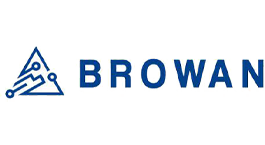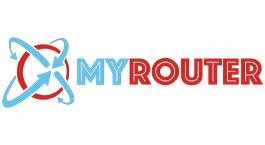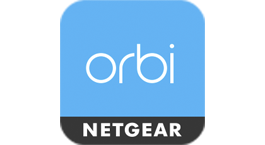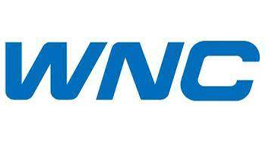Default logins for 192.168.1.1
How to login 192.168.1.1
The 192.168.1.1 IP address is a gateway to the world of router administration, allowing users to configure settings and manage their network. This article will guide you through the process, keeping in mind that the IP address, username, and password can vary, as represented by 192.168.1.1 1234 -.
You can do all of this by logging into the setup pages for your Cisco router. All Cisco routers allow you to change their configuration by logging in to their browser-based setup pages.
What you’ll need
Chances are, you already have everything you need to access your Cisco router:
- Your Cisco router
- A computer or laptop with an internet browser
- An ethernet cable or WiFi connection
Cisco Login Steps
If you don’t want to mess around with complicated command-line instructions, this is the most user-friendly way to manage your router and WiFi network.
Luckily, there is a standard process to access these setup pages that’s the same for almost every Cisco router.
1Make Sure You are Connected to \Your Cisco Router Network
You’ll first need to connect to your router in order to reach its web-based setup pages. Firstly, make sure that your router is powered on. You can use either an ethernet or WiFi connection, but an ethernet connection is recommended when accessing the setup pages.
To do this, plug an ethernet cable into a port on your laptop and one of the ports on your router. To connect using WiFi, look for the network under the available networks on your computer and connect to it. If you’re able to successfully connect to the network, you can now proceed to the next steps.
2Navigate to IP 192.168.1.1 Using the Browser
Open any web browser and type in 192.168.1.1 in the address bar. This should be the default Cisco router IP address and will take you to your Cisco router login page.
192.168.1.1 is the most common default IP address for Cisco routers. However, if that doesn’t work, there are some other possible IP addresses. Also, try using:
- 10.0.0.1
- http://192.168.1.1
3Find Your Router IP Address Using 'ipconfig'
Finally, you can find your router IP address by running an IP config scan using the following steps:
#1: Click Start and type ‘cmd’ in the search bar
#2: Select ‘Command Prompt’ to open it
#3: Type in ‘ipconfig’ and hit enter
#4: Look for your router’s IP address next to ‘Default Gateway’
Now, you can type this IP address into the address bar of your browser to navigate to the setup pages.
4Use Default Username & Password to Log In
Cisco routers use default login credentials to make it easy to access the setup pages. The most common combination is:
Username: admin
Password: admin
If that doesn’t work, it might also be:
Username: Cisco
Password: Cisco
The login credentials can also be found on the back of some routers. If your login details have been changed but you can’t remember what they are, you will need to reset your router to its default configuration.
5Configure the Cisco Router & Change Settings
If you’ve made it this far, you should now be logged into the router’s setup pages. From here, you can configure your router’s security settings, reset your router, or change your login details.
That’s all you need to do to access your Cisco router! Easy, right?
Remember to write down your previous settings and what changes you make so that you can retrace your steps if something goes wrong. If you change your username or password, write these down too so that you don’t forget.
Cisco Router Login
Having trouble with your wifi network? Want to secure your network by changing the network name and password? Or, do you want to make any other change to your Cisco router’s configuration?
You can do all of this by logging into the setup pages for your Cisco router. All Cisco routers allow you to change their configuration by logging in to their browser-based setup pages.
Brands using 192.168.1.1

3Com

AboCom

Accton

Acelink

Acer

Actiontec

ADB

Addon

ADI Engineering

Adtran

Advantech

Aerohive

Airlink

Airlink+

Airlink101

Airnet

AirTies

Alcatel

Alcatel-Lucent

ALFA Network

Alice

Allied Telesis

Allnet

Alpha

Altice Labs

Amigo

AMRISC

AOpen

APC

Apple

Araknis Networks

Arcadyan

AsiaRF

Askey

ASRock

ASUS

Atheros

ATRON

attwifimanager

Autonet

AWB

Aztech

Banana Pi

BandLuxe

BaudTec

BCM

Beeline

BelAir Networks

BenQ

Billion

Bitdefender

Blanc

Bleuciel

Blitzz

Bountiful

Broadcom

Browan
Budget
Budget 1 Wireless

Buffalo

Calix

Cameo

CastleNet

Cellvision

Charter

China Telecom

ChipSiP

Circle Media

Cisco

ClearAccess

CNet

Coexistence

Compaq

Compex

Comtrend

Comtrendc

Connected IO

Connectland

Corega

Creative

CyberTAN

CZ.NIC

DareGlobal

DirecTV

D-Link

DQ Technology

DrayTek

Dynalink

DZS

ECI

Edgewater Networks

Edimax

EE

Elecom

E-Lins

Eltel

EMC Tech

Encore

EnGenius

Enterasys

Ericsson

E-TOP

Eumitcom

FAST

FiberHome

Firefly

Flyingvoice

FMI

Fonera

Foxconn

Free

Freebox

F-Secure

FTZ Oplink

Furrion

Gateway

Gateworks

Gemtek

getnet

Gigaset

Global Sun


Google Fiber

Gryphon Online Safety

Gstar Technology

H3C

Hame

Hawking

Honeywell

Hongdian

HP

Huawei

Humax

IBM

iBoss

iiNet

innacomm

innoband

Inseego

Intelligent Technology

Intermec

Intex

IP-COM

ISONWIFI

Itian

JCG

Jensen

Jetstream

Jize

Kasda

Keewifi

Kozumi

KZTECH

L7 Networks

Lava

Layer3 TV

Lenovo

LevelOne

Linking

Linksys

Lippert Components

Logitec

LOUD Audio

Luma

MacSense

Medion

Meraki

Mercku

Mercury

Microlink

Micronet

miniDSP

MitraStar

Mocet

MoFi Network

Motorola

Movistar

MQmaker

MSI

Myfiosgateway

Myrouter

NAG

National Datacomm

NEC

NEC AccessTechnica

Netcore

Netgear

netgear-orbi

Netis

Netopia

Netronix

Netsys

NetweeN

Network Everywhere

Net Zen
Newer Technology

newifi

Nexaira

Nokia

Norton

Norton Core

Nuvo

Onelink

On Networks

Open-Mesh

Option

Orange

Orange (manufactured by Sagemcom)

Pace Americas

pakedge

Paradigm

Paradyne

Perfect

PHICOMM

Philips

Pioneer

Pirelli

Planet

Planex

Plume

Poray

PRO-NETS

Proware

QTECH

RadioLabs

Razer

ReadyNet

Roqos

Rosewill

Runtop

Sagemcom

Salt

SAPIDO

SerComm

SFR

Shanghai DareGlobal Technologies

Shenzhen

Shenzhen DareGlobal Technologie

Shenzhen DareGlobal Technologies

Shenzhen Gongjin Electronics

Shenzhen MTN Electronics

Shiko

Siemens

Siligence SAS

SimpliNET

SmartRG

SOHOware

SparkLAN

spectrum

Sputnik

SUNMI

Synology

technicolor

Tecom

Telsey

Tenda

Texas Instruments

Tilgin

TOTOLINK

TP-LINK

TPlinkrepeater

TRENDnet

TROY Wireless

Turris

Ubiquiti Networks

Unbranded

Uniden

UPVEL

USRobotics

UTT

ViewSonic

VisionNet

Visonicom

VIZIO

Well Communications

Westell

Western Digital

Wippies

Wistron NeWeb

WondaLink

XAVi

X-Micro

ZBT

Z-Com

Zero

Zero One Technology

Zhuhai

Zhuhai FTZ Oplink Communications

Zinwell

Zonet

Zoom

ZTE

ZyXEL
FAQ IP adddress
1. What is 192.168.l.l?
192.168.1.1 is a default IP address. The IP address always contains 4 sets of numbers ranging between 0 and 255. This is because each device connected to the internet is supposed to have a unique address. So, the first three sets are the network id, and the last set is the device id. In 192.168.1.1 the network id is 192 and the device id is 168.1.1
2. How to log in to 19168.l.l / How to login into 19168.l.l / How to use 19168.l.l
First, type 192.168.1.1 in your browser’s address bar. Then, enter username and password, and then click OK or Login.
3. What are the (most common) default logins for 192.168.l.l?
The most common default logins for 192.168.1.1 IP address are Username: admin, Password: admin
4. What is the (most common) default username for 192.168.l.l?
The most common default username for 192.168.1.1 address is admin
5. What is the (most common) default password for 192.168.l.l?
The most common default password for 192.168.1.1 address is admin
6. 192.168.l.l - How to Access Router IP Address?
First, type 192.168.1.1 in your browser’s address bar, Then, enter your username and password, and then click OK or LOGIN. The most common default logins to access 192.168.1.1 are - username: admin, password: admin
7. How to login into 192.168.l.l / Hot to go to 192.168.l.l / How to use 192.168.l.l
First, type 192.168.1.1 in your browser’s address bar, Then, enter your username and password, and then click OK or LOGIN. The most common default logins to access 192.168.1.1 are - username: admin, password: admin